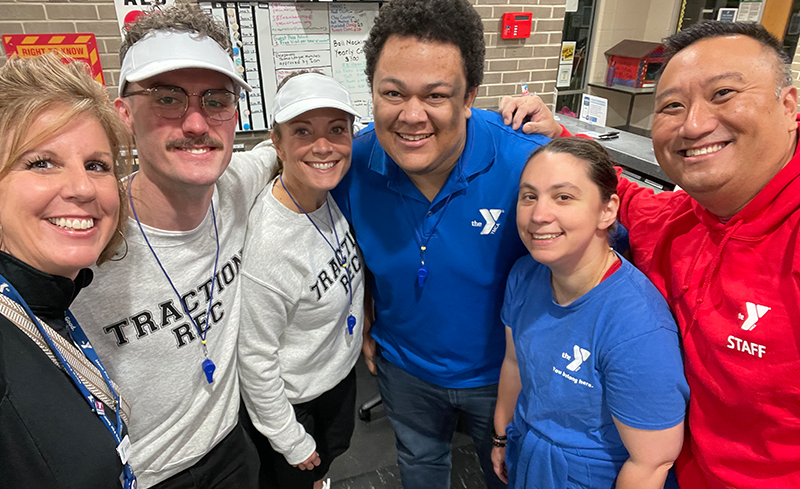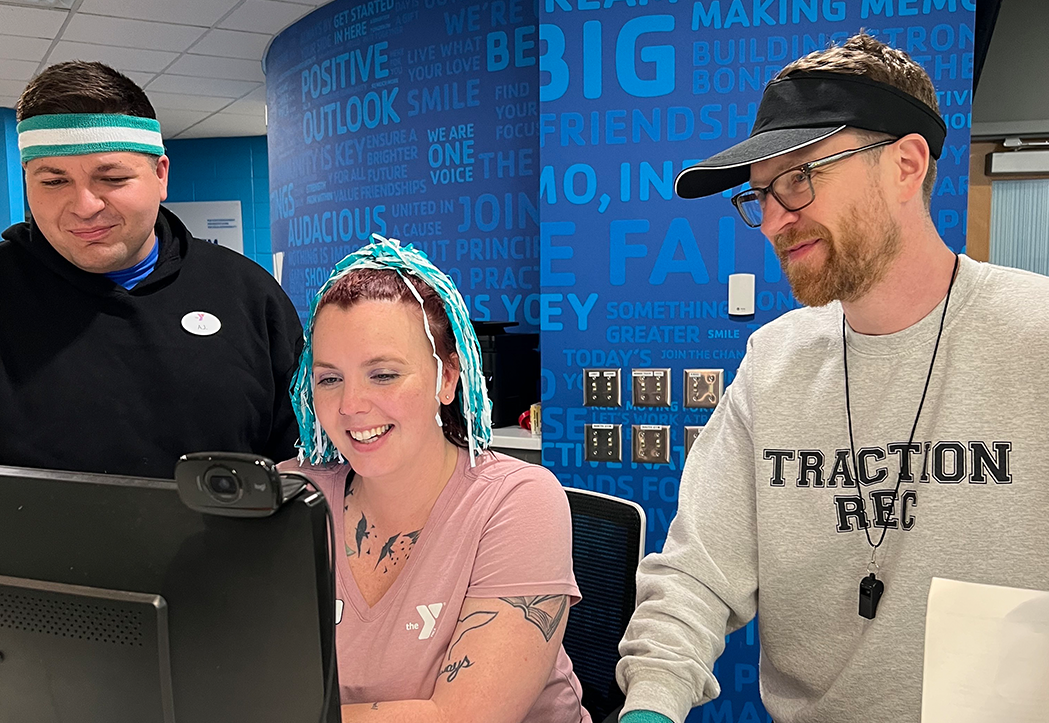Just like many organizations, JCC Chicago grappled with the limitations of spreadsheets for data gathering and analysis. The struggle to gain a comprehensive view of their members was real, and it impacted their ability to offer financial support to the members that needed it the most.
However, they made a turning point, leaving behind the maze of paperwork and documents, and were able to increase operational efficiency and streamline processes with Traction Rec and Salesforce. The result? They empowered their leadership team and staff to become more data-informed, transforming their capabilities when making intentional and strategic decisions.
In this webinar, Maggie Marx of JCC Chicago, alongside our own Lauren Goldman, does a deep dive into the power of reporting with Traction Rec and Salesforce, showcasing how community centers like JCC Chicago have transformed their data reporting capabilities.
What you’ll discover in this webinar:
- Understanding how to practically leverage data, and how dashboards play a pivotal role in decision-making processes.
- The challenges and negative impact of poor data collection and membership insight, which adversely affected their processes and capacity to address the needs of JCC members.
- Live demonstration of how JCC Chicago evaluates and interprets member data reflecting financial need trends, including insights into how JCC Chicago effectively utilizes an executive leadership dashboard.
- How other departments are now more actively involved and contributing to the reporting and analysis of data like never before
We've pulled together a recap of our key takeaways from this webinar. You can watch the entire discussion further below.
<hr></hr>
Pulling a report isn’t just for analysts
It’s something that everyone in an organization can learn how to do, and it starts with the basics. Accurate, real-time, and detailed reports and dashboards are a fundamental component of managing the day-to-day operations of an organization, as well as thoughtfully engaging with community members.
“One of the very first dashboards that was created was this executive leadership dashboard. This is still one of our favorite dashboards, [and] I can tell you that every member of our leadership team logs into this first thing in the morning and many times throughout the day,” says Maggie.
<iframe width="560" height="315" src="https://www.youtube.com/embed/5M0fBNn4zdc" title="Looking at the data to understand the story it’s telling" frameborder="0" allow="accelerometer; autoplay; clipboard-write; encrypted-media; gyroscope; picture-in-picture; web-share" allowfullscreen></iframe>
<hr></hr>
Data tells a story
Data provides a measure of impact as an organization, as well as any of the interactions that one might have as a member manager. The more data you’re able to consolidate, while creating consistent data points and segments, the faster information can be delivered to people to be acted upon. Being able to report on live, real-time data, can be very impactful.
While demoing their financial assistance process, Maggie showcases the software’s ability to do on the spot comparisons of year-on-year data in order to guide decision making. After the financial assistance manager reviews the case, they then look for extenuating circumstances and use two dashboards to make their recommendations.
“One of those dashboards we do use is that executive dashboard to look at those enrollment numbers [and] trends–should that inform the decision in any way,” says Maggie, adding that the second dashboard they use for the recommendation process is their budget dashboard.
<iframe width="560" height="315" src="https://www.youtube.com/embed/CBlVWegpCTo" title="" frameborder="0" allow="accelerometer; autoplay; clipboard-write; encrypted-media; gyroscope; picture-in-picture; web-share" allowfullscreen></iframe>
<hr></hr>
Reporting has become a core competency
Building, reading, and interpreting data in dashboards has become a core competency, like using Excel or Word. It’s a transferable skill, no matter what organization you’re in–reporting is a way to help you act, analyze, and strategize.
In JCC Chicago’s case, once they learned the basics of reporting via dashboards, enthusiasm for actionable insights and making data-informed decisions grew across the organization. Maggie shares that after showing the executive dashboard to other department heads, they all wanted one–kickstarting the creation of many other dashboards.
For example, they created an early childhood dashboard with a location filter, so every early childhood website was able to have their own unique dashboard. Case management and financial assistance dashboards were also created–with dashboard wishlists growing longer by the day.
<hr></hr>
Watch the complete webinar.
[2:38] Pulling a report isn’t just for analysts, anyone can do it
[7:40] What are report types, reports, and dashboards?
[11:10] How JCC Chicago uses dashboards and reports
[15:29] Diving into the financial assistance process
[22:00] How does the data reflect financial need?
[30:16] How data helped JCC Chicago support more families
<iframe width="560" height="315" src="https://www.youtube.com/embed/MKiy9K0LD98" title="The power of reporting with Traction Rec and Salesforce" frameborder="0" allow="accelerometer; autoplay; clipboard-write; encrypted-media; gyroscope; picture-in-picture; web-share" allowfullscreen></iframe>
*Photos courtesy of JCC Chicago and Lynn Renee Photography




























